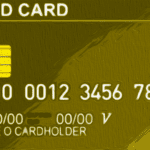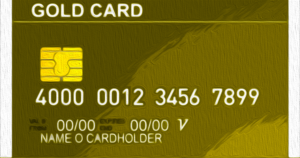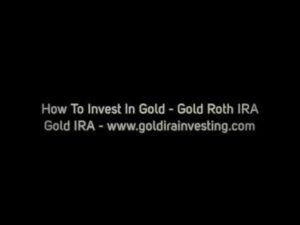
New Regulations for Virtual Currency Listings and Delistings
The New York Department of Financial Services (NYDFS) has recently released new standards for virtual currency (coin) listings and delistings. These regulations, which affect Bitlicensees and limited-purpose trust companies, include guidelines for business models of virtual currency entities (VCEs), risk assessment expectations, advance notification requirements, and updated definitions.
Requirements for VCE Coin-Listing Policies
Under the latest guidance, VCEs with prior approvals for coin-listing policies must now obtain NYDFS approval for both coin-listing and coin-delisting policies before self-certifying any coins. Once both policies are approved, VCEs can self-certify coins for activities in New York. However, without NYDFS-approved listing policies, VCEs will generally be limited to listing coins on the NYDFS Greenlist, unless they receive specific approvals. The NYDFS also has discretionary authority to delist coins or restrict access to non-Greenlist coins for New Yorkers.
Governance Requirements for Coin-Listing
The new regulations require VCEs to actively involve their board of directors or equivalent governing authority in overseeing coin-listings. This includes annual approvals of coin-listing policies, decision-making on new listings, and ensuring independence from those proposing listings or delistings. VCEs must also manage and disclose any conflicts of interest, maintain compliant recordkeeping accessible for NYDFS review, and promptly notify the NYDFS of any non-compliance or material changes to their coin-listing policy.
The governing authority must reassess the coin-listing policy annually to ensure ongoing risk mitigation and maintain independence from the initial recommendation process. The NYDFS aims to enhance governance frameworks to improve risk management and regulatory compliance among compliant VCEs.
Risk Assessment Requirements for Coin-Listing
In response to requests for clarity on risk assessment expectations, the NYDFS has specified several risks that VCEs must assess. These risks include technical design and technology, operational, cybersecurity, market and liquidity, illicit finance, legal, reputational, and regulatory risks. VCEs must also consider other factors specific to each coin and its uses, and incorporate NYDFS guidance on preventing market manipulation and other wrongful activities.
VCEs must identify and mitigate risks arising from conflicts of interest by implementing policies and procedures that prevent such conflicts from influencing decisions and assessments for each coin review. Potential conflicts of interest must be clearly disclosed to the public. Additionally, VCEs are responsible for ensuring fair treatment and protection of all customers under applicable laws and regulations, including protection from unfair, deceptive, or abusive practices.
Limitations of VCE Self-Certification
The new guidance sets strict requirements for VCEs self-certifying coins. Coins used for illegal purposes or to conceal identities are not eligible for self-certification. Restrictions also apply to non-Greenlist stablecoins, exchange coins, coins on protocols with decentralization concerns or significant concentration risks, bridged coins, and coins with less than 35% circulating supply. VCEs must seek NYDFS approval for listing such coins and provide a comprehensive risk assessment and business use case.
Monitoring of Self-Certified Coins
VCEs must establish robust monitoring policies for self-certified coins to ensure compliance with safety, customer protection, and compliance standards. These policies should include annual re-evaluations, risk management controls, and a clear coin-delisting policy. VCEs are also expected to follow the NYDFS's guidance on blockchain analytics, as well as adhere to Bank Secrecy Act and anti-money laundering and sanctions-related controls.
Delisting Requirements for VCEs
The new guidance provides clarity on coin delisting expectations for VCEs. VCEs must be prepared to discontinue support for coins that pose elevated risks while prioritizing safety, soundness, and customer and public protection.
Delisting policies must be comprehensive and reflect the VCE's business model, operations, customer base, operational geographies, service providers, and coin characteristics. Limited exceptions may be granted with NYDFS approval. VCEs were required to meet with the NYDFS by December 8, 2023, to discuss draft coin-delisting policies, with final policies due by January 31, 2024.
Governance Requirements for Coin Delisting
VCEs must obtain approval from their governing authority for coin-delisting policies, conduct annual reviews for effective risk management, and maintain independence from those recommending listings or delistings. Accurate records must be kept for NYDFS review, and written notification must be provided to the NYDFS at least ten business days before delisting a coin. VCEs must also provide a rationale for delisting and a timeline. Major changes to coin-delisting policies require written approval from the NYDFS.
Policy Requirements for Coin Delisting
Delisting policies must outline the delisting process, including criteria thresholds and integration with the VCE's monitoring procedures. VCEs should regularly review and update these procedures based on new findings, legal or regulatory changes, or directives from the NYDFS. Roles and responsibilities must be established for different triggering events to provide clear instructions for stakeholders.
Delisting events require at least 30 days' advance notice to customers, unless directed otherwise by the NYDFS. VCEs must address customer questions and assist with the sale of impacted coins, document all aspects of the delisting decision, continue monitoring for safety and soundness, and assess the impact on operations, counterparties, and service providers.
Conclusion
The NYDFS's updated virtual currency regulations aim to strengthen risk management and regulatory compliance among VCEs operating in New York. The new guidelines provide clarity on coin-listing and delisting requirements, governance and policy obligations, risk assessment expectations, and monitoring standards. VCEs must ensure compliance with these regulations to maintain their operations and protect their customers.
What are your thoughts on New York's new virtual currency guidance? Share your opinions in the comments section below.
Frequently Asked Questions
Should You Buy Gold?
In the past, gold was considered a haven for investors during economic turmoil. Many people are now turning their backs on traditional investments like stocks and bonds, and instead look to precious metals like Gold.
The gold price has been in an upward trend for the past few years, but it remains relatively low compared with other commodities like silver or oil.
Some experts think that this could change in the near future. According to them, gold prices could soar if there is another financial crisis.
They also pointed out that gold is gaining popularity due to its perceived value, and potential return.
These are some things you should consider when considering gold investing.
- Consider whether you will actually need the money that you are saving for retirement. You can save for retirement and not invest your savings in gold. However, when you retire at age 65, gold can provide additional protection.
- Second, be sure to understand your obligations before you purchase gold. Each one offers different levels security and flexibility.
- Don't forget that gold does not offer the same safety level as a bank accounts. It is possible to lose your gold coins.
So, if you're thinking about buying gold, make sure you do your research first. You should also ensure that you do everything you can to protect your gold.
Who owns the gold in a Gold IRA?
The IRS considers an individual who owns gold as holding “a form of money” subject to taxation.
To be eligible for the tax-free status, you must possess at least $10,000 gold and have had it stored for at least five consecutive years.
Owning gold can also help protect against inflation and price volatility, but it doesn't make sense to hold gold if you're not going to use it.
You will need to declare the value of gold if you intend on selling it one day. This could impact how capital gains taxes you owe for cash investments.
Consult a financial advisor or accountant to determine your options.
What is the best precious-metal to invest?
This question depends on how risky you are willing to take, and what return you want. Gold has been traditionally considered a haven investment, but it's not always the most profitable choice. For example, if you need a quick profit, gold may not be for you. Silver is a better investment if you have patience and the time to do it.
If you don't care about getting rich quickly, gold is probably the way to go. However, silver might be a better option if you're looking for an investment that provides steady returns over long periods.
Can I buy or sell gold from my self-directed IRA
While you can purchase gold from your self-directed IRA (or any other brokerage firm), you must first open a brokerage account such as TD Ameritrade. If you already have a retirement account, funds can be transferred to it.
Individuals can contribute as much as $5,500 per year ($6,500 if married filing jointly) to a traditional IRA. Individuals can contribute up to $1,000 annually ($2,000 if married and filing jointly) directly to a Roth IRA.
If you do decide to invest in gold, you'll want to consider purchasing physical bullion rather than investing in futures contracts. Futures contracts can be described as financial instruments that are determined by the gold price. They let you speculate on future price without having to own the metal. Physical bullion, however, is real gold and silver bars that you can hold in your hand.
How do you withdraw from an IRA that holds precious metals?
First, decide if it is possible to withdraw funds from an IRA. Then make sure you have enough cash to cover any fees or penalties that may come with withdrawing funds from your retirement plan.
Consider opening a taxable brokerage instead of an IRA if it is possible to pay a penalty if your withdrawal is made before the deadline. This option is also available if you are willing to pay taxes on the amount you withdraw.
Next, you need to determine how much money is going to be taken out from your IRA. This calculation depends on several factors, including the age when you withdraw the money, how long you've owned the account, and whether you intend to continue contributing to your retirement plan.
Once you have an idea of the amount of your total savings you wish to convert into cash you will need to decide what type of IRA you want. Traditional IRAs allow for you to withdraw funds without tax when you turn 59 1/2. Roth IRAs, on the other hand, charge income taxes upfront but you can access your earnings later and pay no additional taxes.
Once you have completed these calculations, you need to open your brokerage account. To encourage customers to open accounts, brokers often offer signup bonuses and promotions. Avoid unnecessary fees by opening an account with your debit card, rather than your credit card.
When it's time to make withdrawals from your precious-metal IRA, you'll need a place to keep your coins safe. While some storage facilities accept bullion bars and others require that you purchase individual coins, others will allow you to store your coins in their own safe. Before you choose one, weigh the pros and cons.
Bullion bars require less space, as they don't contain individual coins. However, you'll need to count every coin individually. However, keeping individual coins in a separate place allows you to easily track their values.
Some prefer to keep their money in a vault. Others prefer to place them in safe deposit boxes. You can still enjoy the benefits of bullion for many years, regardless of which method you choose.
How Does Gold Perform as an Investment?
The supply and the demand for gold determine how much gold is worth. It is also affected by interest rates.
Gold prices are volatile due to their limited supply. You must also store physical gold somewhere to avoid the risk of it becoming stale.
Statistics
- Instead, the economy improved, stocks rebounded, and gold plunged, losing 28 percent of its value in 2013. (aarp.org)
- The price of gold jumped 131 percent from late 2007 to September 2011, when it hit a high of $1,921 an ounce, according to the World Gold Council. (aarp.org)
- This is a 15% margin that has shown no stable direction of growth but fluctuates seemingly at random. (smartasset.com)
- Indeed, several financial advisers interviewed for this article suggest you invest 5 to 15 percent of your portfolio in gold, just in case. (aarp.org)
- (Basically, if your GDP grows by 2%, you need miners to dig 2% more gold out of the ground every year to keep prices steady.) (smartasset.com)
External Links
investopedia.com
- Are You a Good Candidate for a Gold IRA
- What are the Options Types, Spreads. Example. And Risk Metrics
cftc.gov
law.cornell.edu
- 7 U.S. Code SS7 – Designation boards of trade as contract market authorities
- 26 U.S. Code SS 408 – Individual retirement accounts
wsj.com
- Saddam Hussein's InvasionHelped Uncage a Bear In 1991 – WSJ
- How do you keep your IRA Gold at Home? It's not exactly legal – WSJ
How To
Guidelines for Gold Roth IRA
The best way to invest for retirement is by starting early. Start saving as soon and as often as you're eligible (usually around 50 years old) and keep going until retirement. You must contribute enough each year to ensure that you have adequate growth.
Additionally, tax-free opportunities like a traditional 401k or SEP IRA are available. These savings vehicles permit you to make contributions, but not pay any tax until your earnings are withdrawn. These savings vehicles can be a great option for individuals who don't qualify for employer matching funds.
It is important to save consistently over time. You will lose any potential tax advantages if you don't contribute enough.
—————————————————————————————————————————————————————————————-
By: Guest Author
Title: New York Issues Updated Virtual Currency Regulations
Sourced From: news.bitcoin.com/new-york-offers-new-virtual-currency-guidance/
Published Date: Fri, 22 Dec 2023 08:00:07 +0000


















